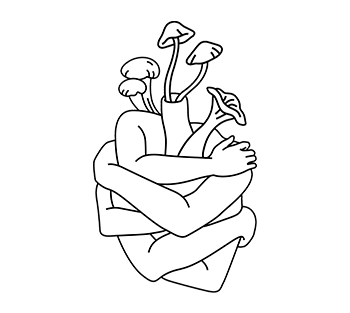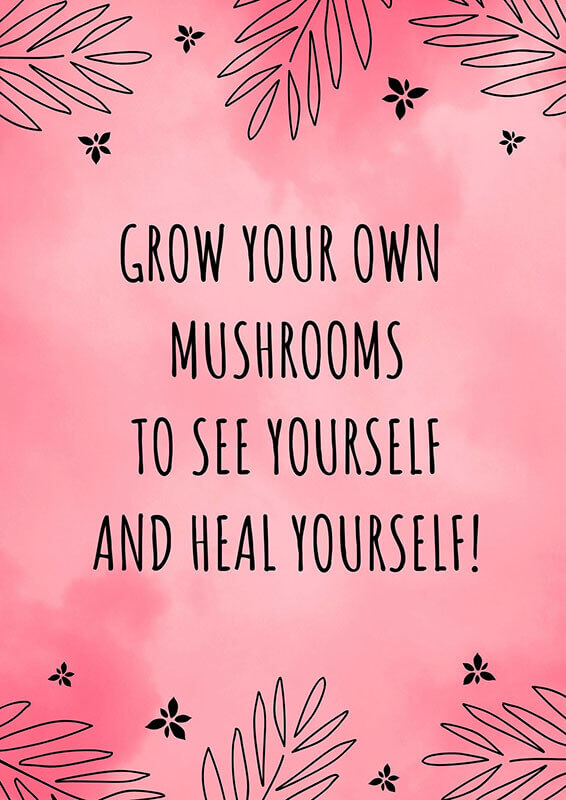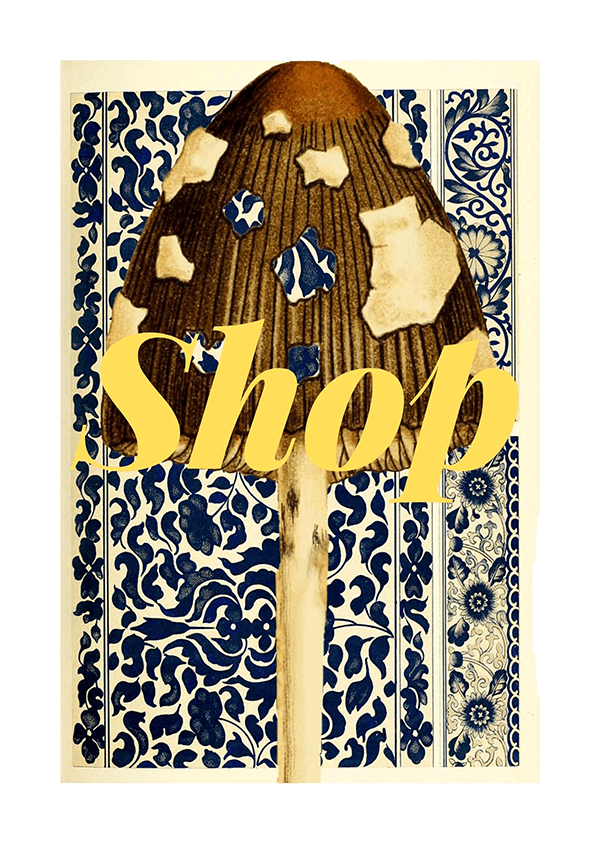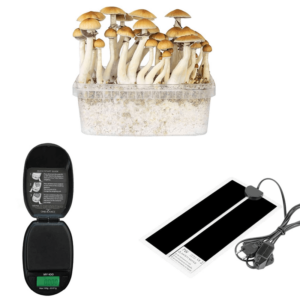Functional mushrooms
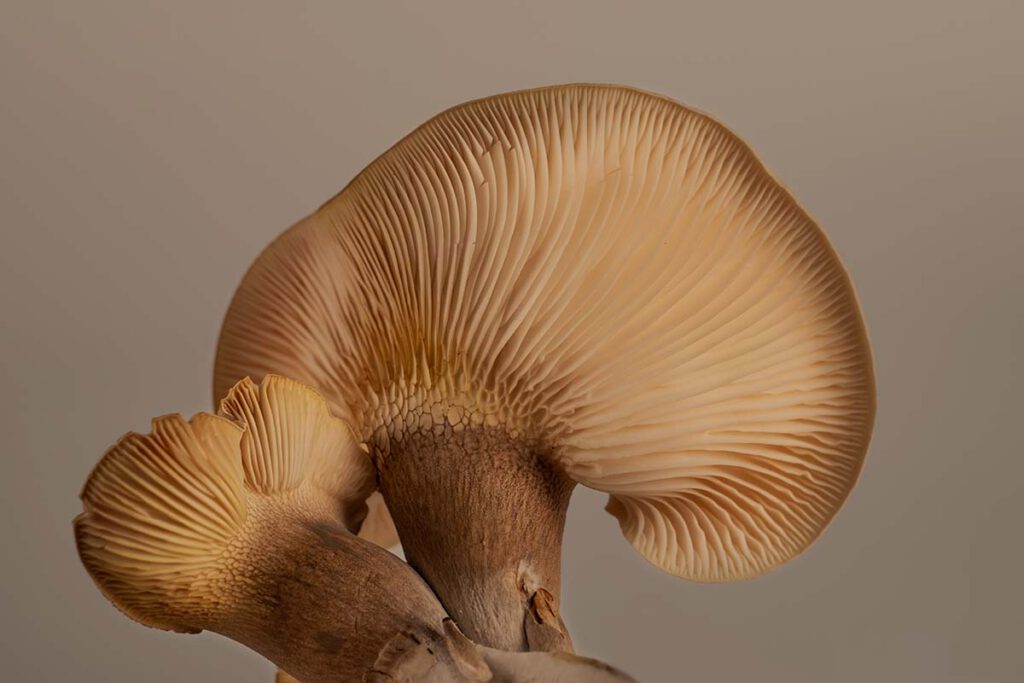
Disclaimer: All information in this post should and can not be construed as a list of medical claims.
Mushrooms are miniature pharmaceutical factories, and of the thousands of mushroom species in nature, our ancestors and modern scientists have identified several dozen that have a unique combination of talents that improve our health.
Mushrooms aren’t just a food source. Some strains have beneficial properties that can positively effect our health. These are commonly called functional or adaptogenic mushrooms.
All mushrooms serve a function, whether as food or part of the ecosystem. However, the phrase functional mushroom specifically refers to varieties that have a health benefit beyond providing nutrition. Common advantages of functional mushrooms include anti-inflammatory properties, and the presence of substances like antioxidants, which can help boost blood flow and provide other benefits.
Some varieties may also help you to better cope with stress. And all of them are nutritious, high protein, high fiber, vitamin-rich foods.
“Some functional mushrooms help balance your body’s reaction to stress. They do this by acting on something called your neuroendocrine system—this is where the conversations between your brain and neurohormonal system take place. If you have high cortisol levels, that translates into a fatigued neuroendocrine system, which affects your immune system, mood, energy levels, and sex drive. By incorporating adaptogens into your life, you can balance that response.”
Natural Immune Support
Mushrooms contain many different compounds. But when it comes to supporting the immune system beta glucans are considered their single most bioactive component. Beta glucans are a type of polysaccharides.
They work by binding to receptors on an assortment of cells important for immunity. That activates pathways in the cells that boost their function and help them defend against infection and other threats.
Immune responses can be divided into two types: innate immunity and adaptive immunity.
1. Innate immunity is the body’s first line of defense. It is comprised of cells that detect and attack a wide range of different viruses and pathogens. Cells of innate immunity include macrophages, neutrophils, NK cells, and others.
2. Adaptive immunity types are the “big guns” that are brought in later to fight off specific threats—a particular bacteria or virus, for example—once they have been identified. This also helps the body develop long-term immunity to a pathogen. The most important of these cell types are lymphocytes, including various B-cells and T-cells.
Beta glucans have a remarkable ability to activate and stimulate both innate and adaptive immunity.
When your are looking into buying functional mushrooms make sure they contain at least 30% polysaccharides.
Our favourite functional mushrooms
1. Lion's Mane (Hericium Erinaceus)
Lion’s Mane is definitely our favourite functional mushroom when it comes to brain and immune health. It has been used in traditional Chinese medicine for at least a thousand years, and is regularly used in cuisines around the world for its exquisite taste.
Lion’s Mane contains nootropic factors, shown consistently to improve brain function in both men and women due to several substances in this mushroom that stimulate nerve growth factor (NGF). NGF regulates the maintenance and repair of neurons.
Besides stimulating the production of NGF, Lion’s Mane is also widely used in order to enhance focus and mental alertness. Users report a clearer state of mind and experience less brain fog. This is why many people use Lion’s Mane in order to achieve better focus.
Pre-clinical and clinical studies have also demonstrated that H. erinaceus may significantly reduce depressive disorder and indicate the potential role of H. erinaceus as complementary and alternative medicine for the treatment of depression.
Nevertheless, the current research on antidepressant effects by H. erinaceus is relatively still at an early stage, and the specific mechanisms underlying the antidepressant-like activities require further investigation.
Potential benefits
- Improves your cognition and mental clarity
- Could protect against dementia like Alzheimer’s or Parkinson’s disease
- May speed up recovery from nervous system injuries
- Could Lower anxiety and depression
- May reduce heart disease risk
- Stimulates nerve growth factor
2. Chaga (Inonotus obliquus)
Scientific research shows that the various substances present in Chaga have a so-called ‘immune regulating’ effect. An immune system that regulates itself ensures that the balance is maintained with both an underperforming and an over-working immune system. For example when a danger (virus, inflammation etc.) has passed, the immune reaction should stop. Or when the immune system has trouble responding in case of any danger, Chaga can help start up the immune system.
In another study, scientists show that water extracts of Chaga are active in fighting cancer cells in humans and animals (in vitro). These supposed anti-carcinogenic effects of Chaga in combination with it’s immune regulating properties are the reason why Chaga is often used to support the immune system during chemotherapy. The anti-inflammatory properties of Chaga can be used for faster recovery in the case of inflammation. Chaga has a beneficial effect on blood pressure and extracts have been shown to protect cellular DNA from damage caused by free radicals.
Potential benefits
- May slow the aging process
- Supports the immune system
- Fighting inflammation
- May lower blood level
- May lower cholesterol
- Could help to manage diabetes symptoms
- May prevent cancer
3. Cordyceps
Cordyceps are a good example of why we find fungi so extremely interesting. You might have seen the original wild specie in nature documentaries before. These fungi take over the bodies and brains of their victims forcing their zombified bodies to climb up to tree tops or low-lying jungle plants where the conditions are ideal for the fungus to thrive. Upon arrival they make their brains explode in order to spread their spores and reproduce. “Damn nature, chill out!!”
In the mountainous regions of Tibet and Nepal Cordyceps are referred to as “Himalayan gold”, not only because of their golden colour but also for their price; they are estimated to sell for in excess of $20,000 per kilo!
Luckily the more common species of Cordyceps Militaris, do not need insects to thrive but are instead grown in laboratories for their potential medicinal properties.
Multiple studies involving average, non-athletes have shown a increase in VO2 max for participants taking Cordyceps Sinensis and Cordyceps Militaris supplements over those taking a placebo pill. A person’s VO2 max is a measure of how fast the body delivers oxygen to the muscles so that the muscles can use that oxygen to produce energy. Elite runners, for example, have almost double the VO2 max of an average person.
Potential benefits
- May help boost the immune system
- Could slow down the aging process
- May boost exercise performance
- May aid post-workout recovery
- Could help to manage diabetes symptoms
Sources
We base our information on science. We however, find it important you do your own research. If you’re in the mood and feel like putting on your science glasses, we made a selection of studies that you can check out online yourself by clicking on them down here.
